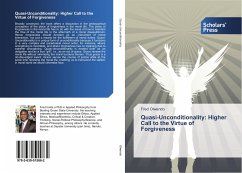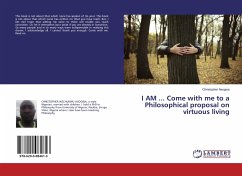Broadly construed, the book offers a discussion in the philosophical conception of the place of forgiveness in the moral life. The place of forgiveness in the moral life has to do with the issue of how to maintain the flow of the moral life in the aftermath of a moral disequilibrium. Hence forgiveness should function as an instrument of moral interaction, not just a means for the fulfillment of moral duties. Quasi-Unconditionality is a unique form of unconditionality because it functions in a very complex and paradoxical moral order, for instance, where wrongdoing is inevitable, and where forgiveness has no meaning due to extreme wrongdoing. Quasi-Unconditionality is treated both as an obligation and as a true "gift", i.e., as an act of grace. Grace renews the moral life without minimizing the moral burdens therein. Thus grace is a double-edged sword. Grace serves the course of justice while at the same time renewing the moral life, enabling us to transcend the walled-in moral world we would otherwise face.
Bitte wählen Sie Ihr Anliegen aus.
Rechnungen
Retourenschein anfordern
Bestellstatus
Storno








